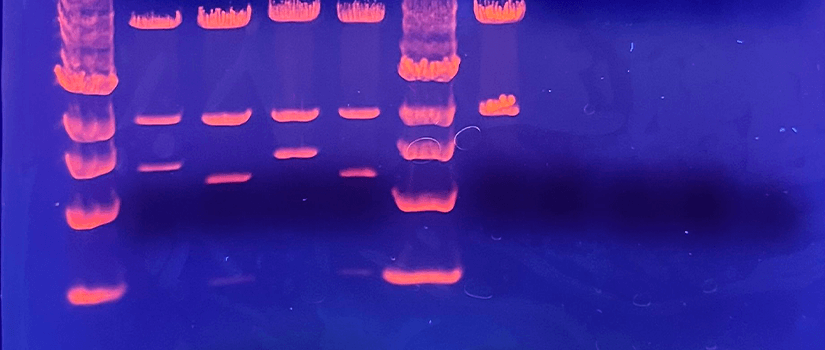For an institution of higher learning, research is an integral part of discovering new information and for providing experiential learning opportunities for students.
Within the College of Pharmacy, the departments of Clinical Pharmacy and Outcomes Sciences and Drug Discovery and Biomedical Sciences are discovering not only new drugs, but new uses and improved methods for existing drugs, and in some cases, combining efforts to meet these goals.
“It is part of our mission and vision to advance health care,” says Michael Wyatt, chair of Drug Discovery and Biomedical Sciences. “By conducting research, we can improve current treatments and find new treatments. Our purpose is to improve human health.”
Among the College of Pharmacy’s many contributions was the development of the saliva test for COVID-19.
“That had an immediate impact,” says Scott Sutton, chair of Clinical Pharmacy and Outcomes Sciences. “It was innovative and developed by the college. Indirectly, we are always searching to discover something that is new – an enzyme, a protein, a target – which can take years to have an impact.”
The two departments have collaborated on the educational mission of the college for many years but had not always done so regarding research. The first collaboration between the departments resulted in a $2.1 million R01 grant from the National Institutes of Health in 2021 for a drug discovery and artificial intelligence study.
By conducting research, we can improve current treatments and find new treatments. Our purpose is to improve human health ...
“Everyone in our respective departments has such a different skill set, and now we are working as one team with one goal,” says Sutton.
In addition to conducting research, as teachers, each faculty member’s responsibility is also to disseminate new information.
“Besides the instruction and lecturing, our primary mission is to serve the broader community by sharing knowledge,” Wyatt adds. “One way to do that is to train our current practitioners not to just be competent for today’s standards, but to also train them to be better providers and teach new advances that will change the standard of care going forward. It is a form of experiential learning.”
Such research opportunities for students are a differentiator for USC’s College of Pharmacy versus peer institutions and take learning far beyond the classroom.
“Rather than being told the answer to a question, it now becomes the student’s job to find the answer,” says Sutton.
“Research requires a different mindset, a different set of skills, and we offer students the chance to develop their capabilities.”
A strong research program also benefits the college by attracting high-level researchers to faculty positions.
“Without funding from competitive sources, some research would not get done,” Sutton says. “As researchers join our faculty, financial support for equipment and supplies, along with grant funding, helps to advance what we are able to offer our students as both graduates and professionals.”
What does all this mean for our state and our nation, even our world?
“Research impacts lives. Whether we are finding new ways to treat cancer with combination therapies, finding advancements to prevent Alzheimer’s, or breaking the connection between drugs of abuse and HIV, we are drawing a line to human health,” says Wyatt. “There is always more to be learned.”
Research is a collaborative effort
In Doug Pittman’s lab, it is normal to find undergraduate, Pharm.D. and Ph.D. students working alongside each other.
“It all really began through a persistent engineering student who camped outside my door, requesting to work in my lab,” says Pittman, director of Pharmacy Graduate Studies. “It grew from there as pharmacy students and undergrads were seeking research opportunities, and we combined that with Dr. Wyatt’s graduate students.”
By offering research opportunities for students who are at varying levels in their studies, who will be working in diverse areas of health care, they learn how to work together as a team.
Pittman, who often helps provide lab tours for students considering the Gamecock Pharmacy Assurance program, encourages students to give more consideration to pursuing research.
“One of our second-year pharmacy students, Marcella Babatunde, recently won a Magellan award from the university and had not considered research as an area that she was interested in until she toured the lab,” he notes.
Research allows students to experience what does not work and learn from those failures.
“When an experiment fails and they ask, ‘What now?’ I can turn it back to them to ask, ‘What do you think is next?’ That develops their critical thinking skills,” he says. “By offering research opportunities for students who are at varying levels in their studies, who will be working in diverse areas of health care, they learn how to work together as a team.”
Topics: Research, Graduate Programs, Pharm.D. Program
